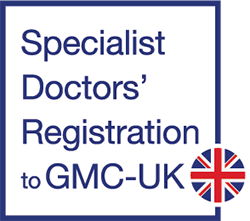Frequently Asked Questions
Below you will find answers to frequently asked questions. Apart from these, we will try to answer your questions about our field as soon as possible. Please use the contact form.
01. What is GMC?
The General Medical Council (GMC) is a public body that maintains the official register of medical practitioners within the United Kingdom. No physician may work in the UK private or public healthcare system without GMC approval.
02. What is the NHS?
The NHS stands for the National Health Service. It refers to the Government-funded medical and health care services that everyone living in the UK can use without being asked to pay the full cost of the service. Most of the health care services of the NHS are ‘publicly funded’, which means money has been allocated by government to pay for this visit to the doctor. The NHS is the umbrella term for the publicly funded healthcare systems of the UK. The systems are 98.8% funded from general taxation and National Insurance contributions, plus small amounts from patient charges for some services.
03. What is IELTS?
IELTS is developed to provide a fair and accurate assessment of English language proficiency. Test questions are developed by language specialists from Australia, Canada, New Zealand, the UK and the USA.
04. What is OET?
The OET is an English proficiency test for doctors and other healthcare professionals which is accepted by GMC can be seen as a facilitating opportunity because it is prepared specifically for healthcare professionals and includes word groups used by physicians in their professional medical lives.
05. Why eligibility assessment?
It is the process of pre-evaluating your current situation and documents in order to save the GMC registration and licensing process from being a long and tiring process. In this way, the possibility of registration rejection based on simple reasons is minimized in GMC applications.
06. How long does the eligibility assessment take?
Eligibility assessment takes 7-14 days according to the documents you provide. This time is needed due to the necessity of translating the documents into English and then careful expert checks.
07. When applying registration?
If you are in found eligible with the documents you have provided, you can apply to GMC directly or through us, after this information has been shared with you.
08. How long does the GMC registration take?
GMC registration and licensing takes 3-9 months according to your speciality and proofs provided by your side.
09. What does SDR-UK examine for you?
First of all, Specialist Doctors’ Registration to GMC-UK (SDR-UK) will make/have the documents you send translated into English by legally accepted institutions in the UK. Then, according to these documents, our experts examine on the basis of GMC criteria. It will then give you recommendations for the GMC application.
Applications made without eligibility process will cause unnecessary correspondence and prolongation of the process between you and GMC. The SDR-UK study solves this problem and helps you get licensed as a physician in the UK as soon as possible.
10. Who is SDR-UK?
SDR-UK is an independent organization that assists professionals from all over the world who wish to practice medicine in the UK. Specialist physicians are assisted upon their request for the GMC license they need to obtain. SDR-UK does not comment on any file without a request. It is not affiliated directly with any public institution, including the GMC.
It is a private organization established in the UK and has undertaken its responsibilities according to British law and legislations.
11. Is there a private practice medicine in the UK?
Private medicine in the UK is a niche market and very small part of the healthcare service sector. Private institutions, mainly focused on dental and cosmetic treatments, operate in almost all major cities. It is mandatory to have a GMC license to work in these institutions. The inability of the NHS to meet waiting time targets for planned surgery led to an increase in the numbers paying personally for private operations.
12. How does the UK healthcare system work?
In Britain, there’s a state-funded system called the National Health Service, or NHS, which guarantees care for all. That means everything from ambulance rides and emergency room visits to long hospital stays, complex surgery is all free. They’re paid for with payroll taxes. In addition, any medication you get during a hospital visit is free, and the cost of most prescription drugs at a pharmacy are very cheap. (Private health care also exists in the U.K., paid out-of-pocket or through private insurance coverage, but only a small minority of residents opt for it.)
Healthcare in the United Kingdom is a devolved matter, with England, Northern Ireland, Scotland and Wales each having their own systems of publicly funded healthcare, funded by and accountable to separate governments and parliaments, together with smaller private sector and voluntary provision. As a result of each country having different policies and priorities, a little variety of differences now exist between these systems.
13. What is a consultant?
Consultants are senior doctors that have completed full medical training in a specialized area of medicine and are listed on the GMC’s specialist register. They have clinical responsibilities and administrative responsibilities.
14. What is the expected salary for specialist in the UK?
Although it varies by region and city, a specialist in the UK is unlikely to earn less than £77,000 a year. The annual fee to be charged varies according to the doctor’s year of specialization and field of specialization. In addition, this figure is much higher for sub-specialists. A consultant earns a basic salary of up to £114,003 per year, depending on the length of your service. Physicians’ income varies with on-call shifts and/or other out-of-hours procedures. The mentioned salaries are given according to 40 hours per week during routine week-day working hours. This income level can be doubled with duties or shifts to be taken outside of routine week-day working hours and especially on weekends or special holidays.
